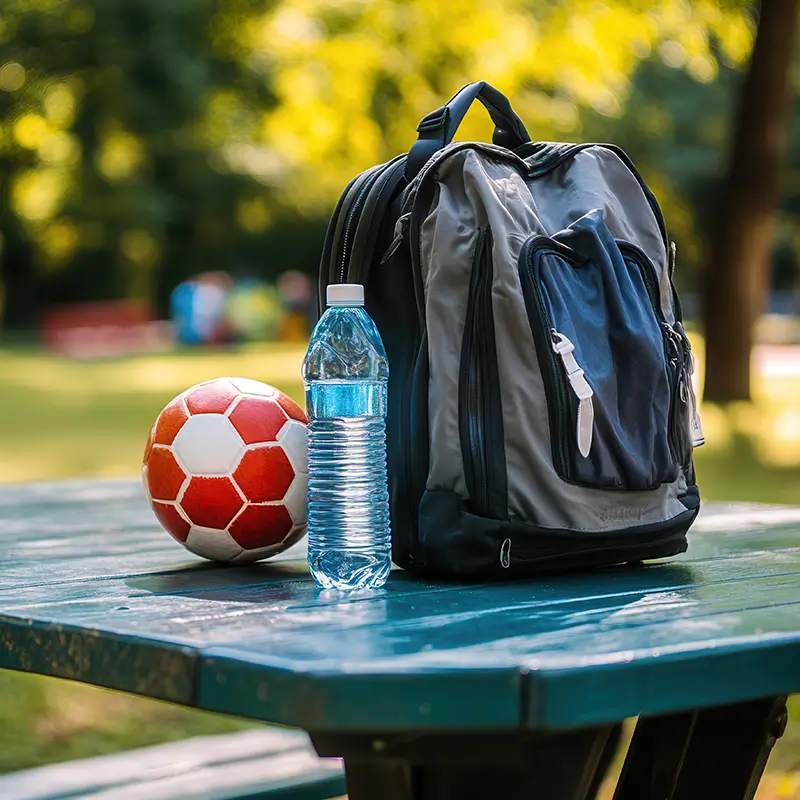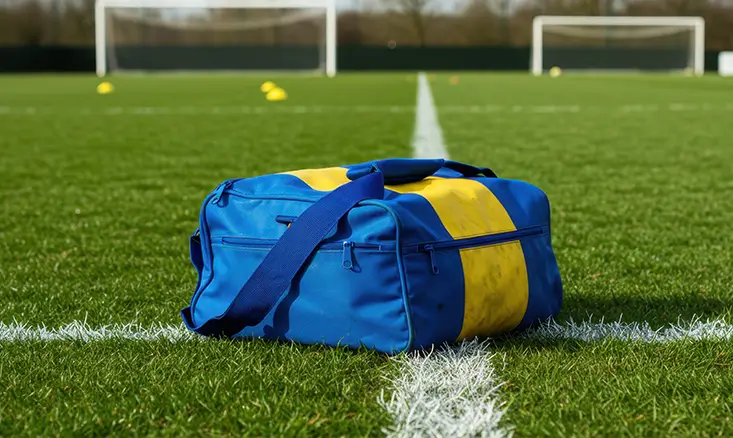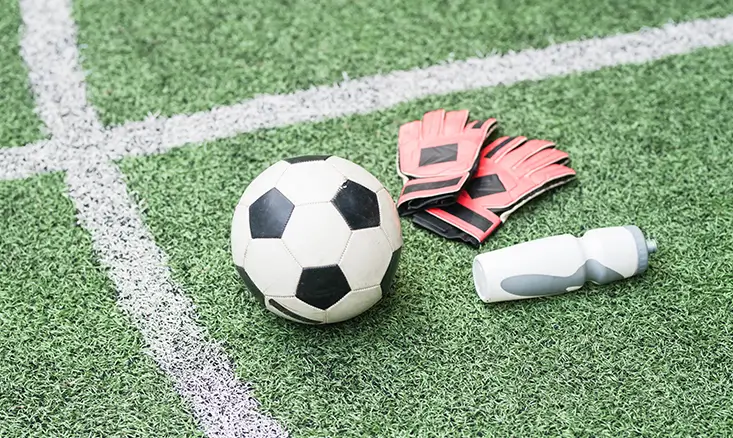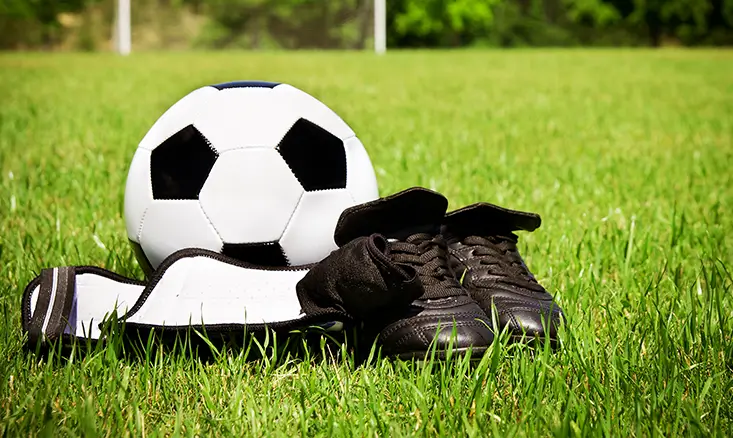How to Pack for a Day at Soccer Summer Camp

CRFC BLOGS
LATEST BLOGS & NEWSLETTERS
How to Pack for a Day at Soccer Summer Camp
Soccer summer camps offer more than just games. They are opportunities for growth, development, and team bonding. Whether your child is attending for the first time or they are a regular, being properly packed is a big part of a successful camp experience. Here is your complete guide to packing smart for soccer summer camp days!
Why Packing Matters More Than You Think
Packing well isn’t just about convenience. It directly affects how your child performs. When a player shows up without the right gear, they can feel distracted or uncomfortable.
That discomfort can turn into poor focus, slow movement, and less fun. The right preparation helps them start the day with confidence and clarity. Keep in mind that preparation builds confidence and removes distractions from performance.
The Ultimate Camp-Day Packing Checklist

Use this checklist to make sure your child has everything they need for a confident and stress-free day at camp!
1. The Daily Essentials: Soccer Gear Must-Haves
Your child will need these items every single day at camp:
- Cleats: Make sure they are already broken in to prevent blisters.
- Shin guards: Required for safety and often mandatory by coaches.
- Soccer ball: Labeled with your child’s name. Usually size 4 (ages 8–12) or size 5 (ages 13+).
- Training shirt and shorts: Breathable, sweat-friendly materials are best.
- Long soccer socks: Pack a second pair just in case.
- Goalkeeper gloves: For keepers only. Must be dry and in good shape.
Takeaway: Gear that fits well keeps your child safe and focused.
1. Dressing for Weather and Activity
Soccer camps run rain or shine. Be ready for both!
- Moisture-wicking base layer: Keeps sweat away from the skin.
- Hoodie or light jacket: For chilly mornings or unexpected breezes.
- Hat or visor: Shields from the sun during breaks.
- Extra socks or shirt: In case of rain, spills, or sweat.
A mom once shared how her son forgot backup socks during a rainy camp. He had to borrow an oversized pair from the lost-and-found and was miserable all day.
Takeaway: Comfort builds confidence, layers, and extras matter.
3. Don’t Forget Hydration

Water is essential for performance, especially in summer heat!
- Large water bottle (32 oz or more): Refillable and labeled.
- Freeze the bottle overnight: Stays cold longer during camp.
- Avoid sugar-packed drinks: Plain water is often best for youth athletes.
According to sports hydration research, even a 1–2% loss in body weight from sweat can cause fatigue and poor focus. Hydration isn’t optional. It is performance fuel.
Takeaway: Hydration helps prevent injuries and boosts energy.
4. Pack Smart Snacks for Sustained Energy
The right food keeps energy up and moods steady!
- Fruits: Bananas, grapes, or apple slices are great options.
- Carbs with protein: Peanut butter crackers or a granola bar.
- Avoid candy and chips: They cause energy crashes.
Younger players often forget to eat, so pack snacks they enjoy and can open quickly. Some camps have short breaks, so keep it simple.
Takeaway: Smart snacks = steady energy and sharper focus.
5. Hygiene, Safety, and Personal Care
Camps get sweaty and messy. Stay prepared!
- Sunscreen (SPF 30+): Apply before camp and pack extra.
- Lip balm with SPF: Protects from the sun and wind.
- Hand sanitizer: Quick and easy after drills or before snacks.
- Wipes or towel: For quick cleanups.
- Hair ties/headbands: Keep long hair out of the face.
Takeaway: Healthy habits support comfort and concentration.
6. Choose the Right Bag
Not all bags are created equal. Organization matters!
- Backpack with compartments: Keeps wet and dry gear separate.
- Mesh pocket for water bottle: Easy access during breaks.
- Label the bag clearly: Reduces the chance of mix-ups.
- Drawstring shoe bag inside: Keeps dirty cleats away from clothes.
Takeaway: An organized bag means faster access and less stress.
7. What NOT to Pack
Certain items just don’t belong at camp!
- Electronics: Can get lost or become distractions.
- Toys or games: Not allowed at most camps.
- Extra cash or valuables: Unnecessary and risky.
Even if your child begs to bring their tablet, the risk of loss or breakage just isn’t worth it.
Takeaway: If it doesn’t help them play, it doesn’t need to be in the bag.
8. Night-Before Packing Routine

Mornings can be chaotic. Pack the night before instead!
- Lay out gear and clothing on a flat surface.
- Fill water bottles and store them in the fridge.
- Double-check with a checklist.
- Set alarms for wake-up and departure time.
Let your child help with this routine. It builds responsibility and reduces anxiety.
Takeaway: Night-before prep leads to smooth mornings and confident players.
9. Teaching Kids to Pack for Themselves
Yes! Even 6-year-olds can start learning how to pack!
- Use a printed checklist with boxes they can check off.
- Start with shared responsibility and phase out over time.
- Praise their effort and independence.
Over time, players who manage their gear tend to feel more ownership of their training and growth.
Takeaway: Packing is a life skill, not just a task.
10. Extra Items That Can Make a Big Difference
These aren’t essential, but they are useful extras!
- Cooling towel for extreme heat
- Small notebook for goal tracking or journaling
- Mini first aid kit (band-aids, blister pads)
- Bug spray for outdoor fields
Takeaway: Little things can make a big impact on comfort and focus.
11. Check With the Camp Organizer
Each camp may have its own rules or requirements!
- Ask if a soccer ball is needed.
- Check if meals are provided.
- Confirm pick-up/drop-off procedures.
Charlotte Rice FC, for example, provides updated info after registration. Don’t hesitate to reach out if you are unsure.
Takeaway: When in doubt. Ask, as it prevents last-minute surprises.
Final Thoughts: Confidence Starts with a Packed Bag!
A smooth day at soccer summer camp begins before your child even steps on the field. By packing the right gear, clothing, snacks, and essentials, you are helping them stay focused, comfortable, and ready to grow as a player.
Whether they are 6 or 16, showing up prepared gives them one less thing to worry about and one more reason to enjoy the game. So pack smart, plan ahead, and let the fun (and learning) begin.
FAQs: Packing for Soccer Summer Camp
1. What should my child wear to soccer summer camp?
Lightweight, moisture-wicking clothes like a training shirt, shorts, shin guards, and long socks.
2. How much water should they bring?
A 32-oz bottle (or more) is ideal. Freeze it overnight so it stays cold longer.
3. Can my child bring snacks?
Yes! Pack healthy, easy-to-eat snacks like fruit, granola bars, or crackers.
4. Does my child need to bring their own soccer ball?
Check with the camp. Most ask for a labeled ball, size 4 for younger kids, size 5 for older players.
5. What kind of bag should we use?
A sturdy backpack with compartments works best. Include a side pocket for the water bottle and label everything.

Did you find this useful?


